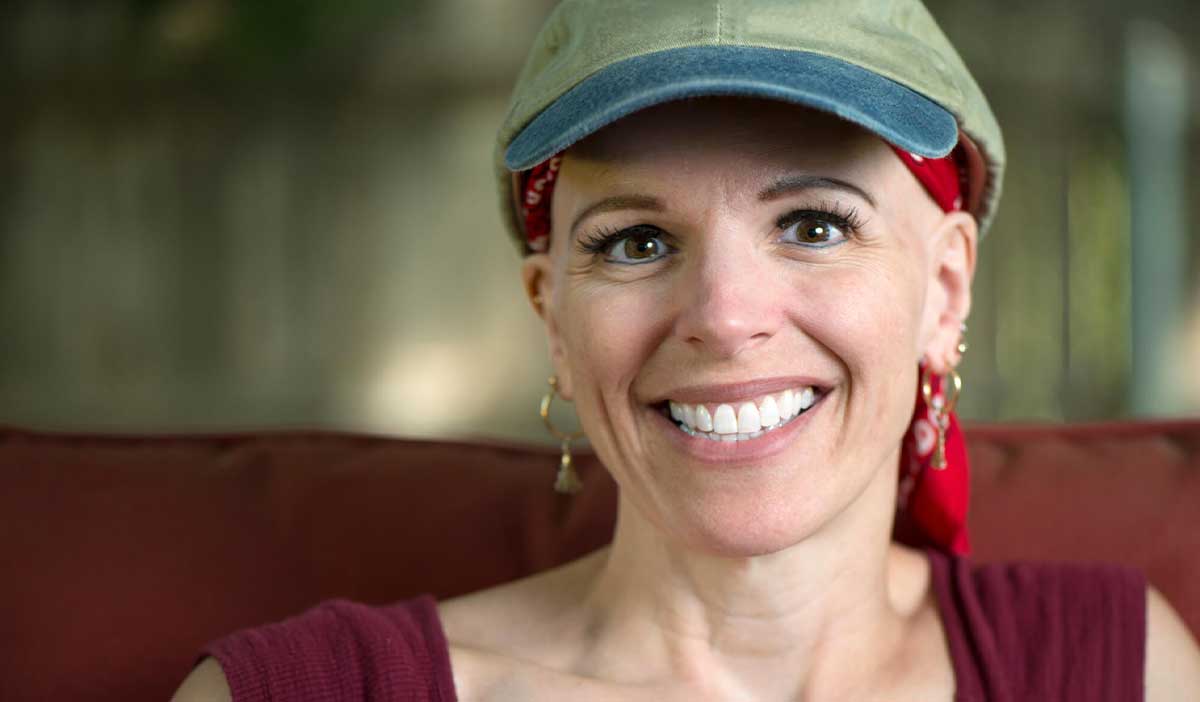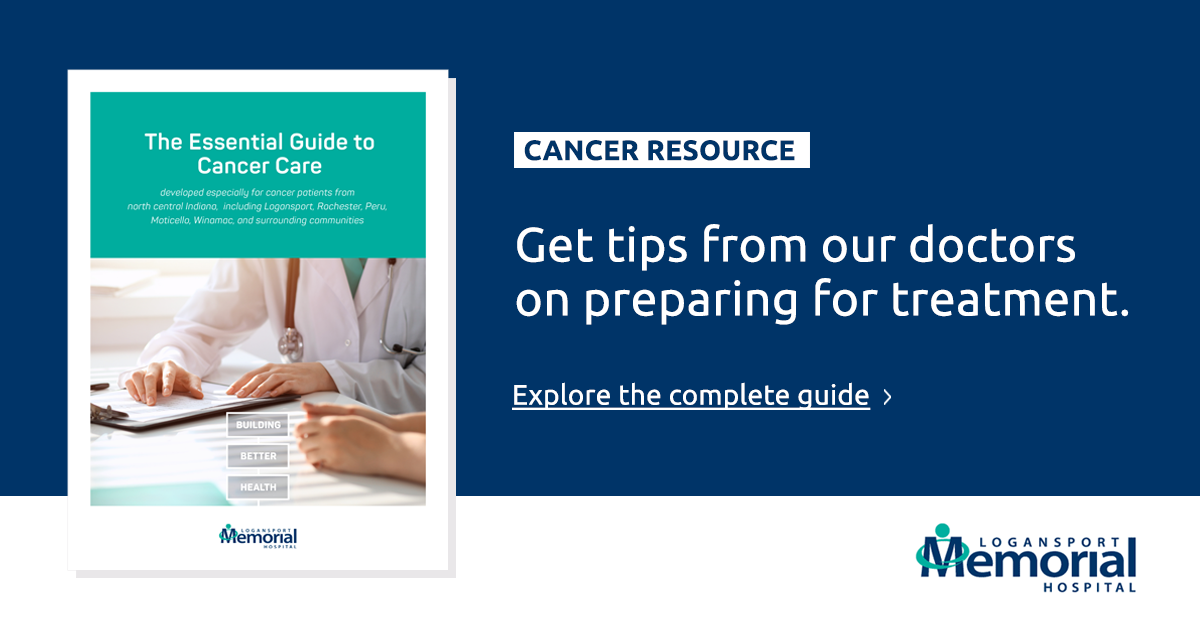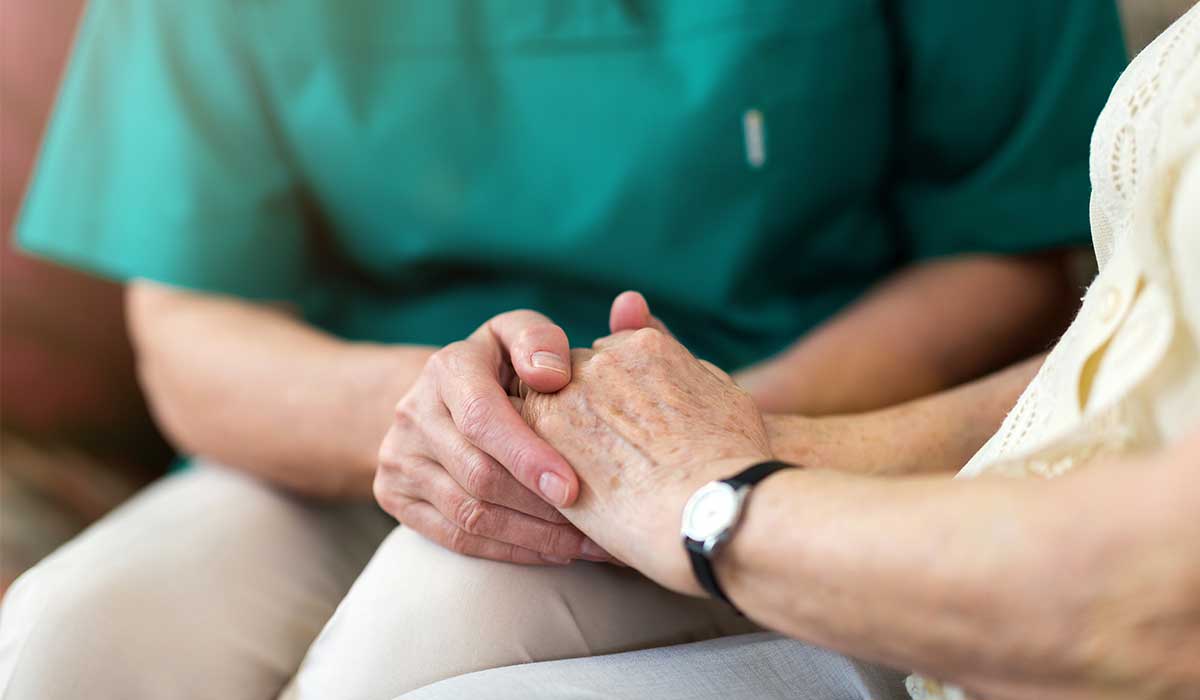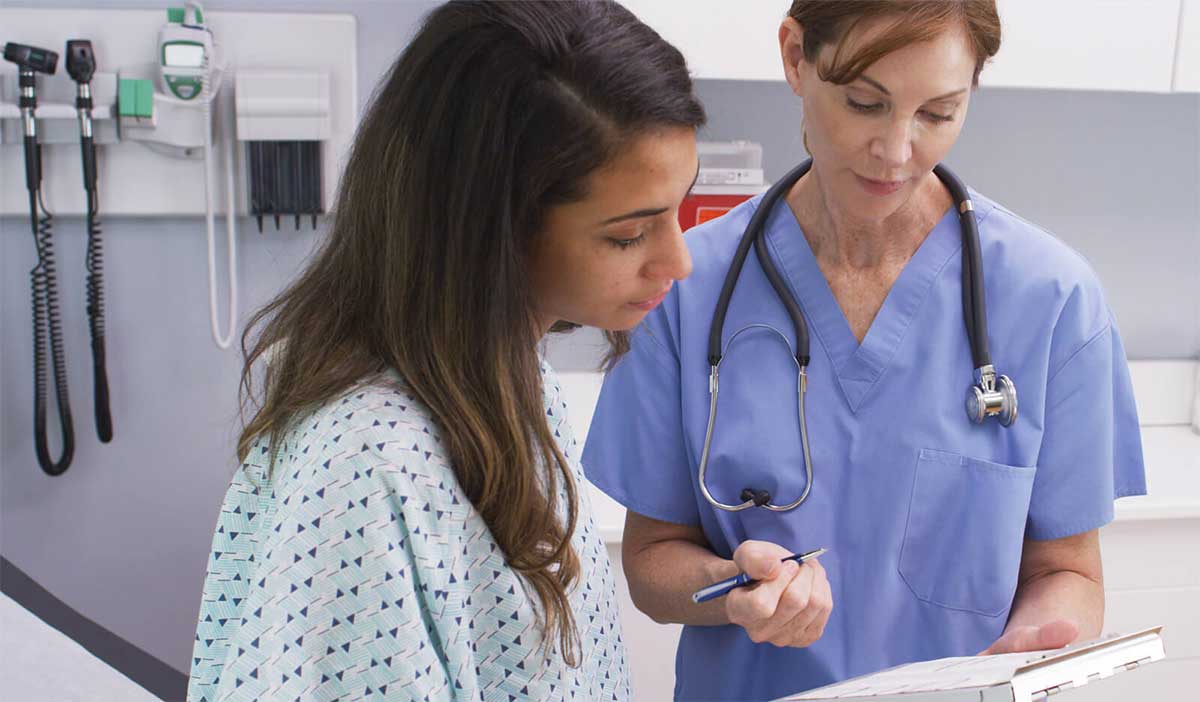This article is part of the Complete Guide to Cancer Care.
For most patients, a cancer diagnosis comes out of the blue. Not having any warning means that most people—understandably—have many questions about what comes next.
After you have taken the time to learn more about what type of cancer you have and whether it’s aggressively spreading or growing slowly, you’ll need to start thinking about what you want to do.
Keep reading for answers to common questions often asked by people who have been recently diagnosed with cancer.

Cancer diagnosis FAQ
What should you expect at your first appointment?
Consider bringing a loved one with you to your first appointment after a cancer diagnosis. Pick a family member or friend who is trustworthy, can help you keep track of what you hear, and serve as an advocate for you and your needs.
Discover the benefits of close-to-home cancer care
At that meeting, you’ll speak with your oncologist about potential treatment approaches, covering their success rates and possible side effects. What’s recommended will depend on the type of cancer you have and its stage, as well as what’s available today thanks to advances in cancer care.
To ensure you get the best possible care, your oncologist may recommend that you speak with a specialist who has expertise in helping patients with your specific type of cancer.
Make sure the doctor you choose to help you through your cancer journey listens to you, explains your options clearly, and takes the time to make you feel comfortable. Having the right chemistry with your doctor will strengthen your partnership and help you feel more at ease during this uncertain period.
When should you get a second opinion?
After getting diagnosed with cancer, it may make sense to get a second opinion. In many cases, another oncologist or cancer specialist will tell you the same thing, and—for many patients—they find this second confirmation will help them feel more confident about their diagnosis and decision about the best treatment option.
“Having a referral consultation before making my treatment decision was helpful and made me feel more at ease about my diagnosis.” —Carol E., breast cancer survivor
How do you tell family and friends that you have cancer?
Your approach for telling loved ones about your condition will depend on how close they are to you and how you typically communicate important information. There’s no perfect strategy for sharing your news.
If you find the prospect of talking about your condition overwhelming, you may ask an advocate to let people know about your cancer diagnosis on your behalf. Many cancer patients find it helpful to have one person serve as a point person, taking calls and responding to emails to share medical updates with your family and friends.
Focus on what’s best for you
As much as possible, try to let people support you during this challenging time. Approach things day by day. If you feel emotionally or physically taxed from the strains of undergoing treatment, now is the time to put your needs first.
Don’t be afraid to change or cancel plans for getting together or take the lead on making arrangements for social interactions to ensure they are the best fit for how you’re feeling.
Cancer care at Logansport Memorial Hospital
The Logansport Memorial Cancer Care Center is a state-of-the-art cancer care facility, serving patients from rural communities across north central Indiana in our convenient location that is close to home. Our experienced oncology team provides cutting-edge treatments and expert, cancer-fighting technologies.
Every patient we treat gets world-class, no matter what type of cancer they’re fighting.
Learn more about the Cancer Care Center
At the Cancer Care Center at Logansport Memorial Hospital, we turn fighters into survivors.
At our modern Cancer Center, you can get all the care you need in one location. If you have questions about our cancer treatment services, let us know. We’re here to help you at every stage of your journey.
When you’re ready, give us a call at (574) 753-9000.

You might also like:
- How to Support a Friend with Breast Cancer
- Cancer’s Connection to Heart Disease
- What Are the Most Common Cancers Found in Men
- The Benefits of Close-to-Home Cancer Care




